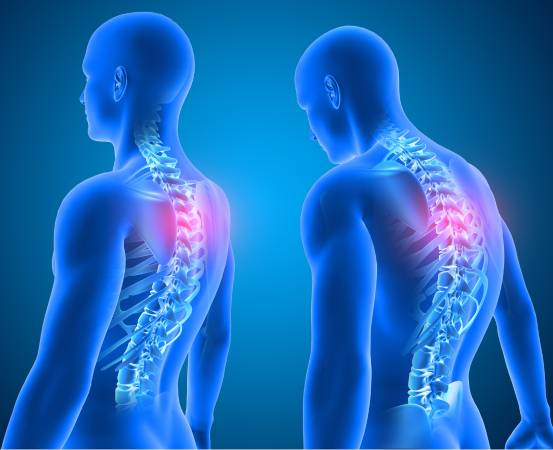Do you feel breathless after exercise? Or have unusual chest pains, fatigue, fainting spells or dizziness? You may be at risk of mitral stenosis (also called mitral valve stenosis), a condition that may stay dormant or asymptomatic for years before showing itself and then, slowly and insidiously, progressing and worsening.

“The smart thing to do if you find that you have the above symptoms is to see a cardio specialist and take the necessary treatment, in time,” says Dr Christopher Pais, a Mangalore-based internal-medicine specialist.
Mitral stenosis is the narrowing of the mitral valve, which enables blood to flow from the upper chamber of the heart (the atrium) to the lower chamber (the ventricle), and also prevents it from flowing back.
Causes of mitral stenosis
“The most common cause is rheumatic fever,” says Dr Pais. “Often called rheumatic mitral stenosis, this happens when your immune system damages the valve while fighting an untreated bacterial infection. Rheumatic mitral stenosis is most common in middle-aged individuals, pregnant women or even athletes in their twenties, and the diagnosis is usually years after the infection happened because the damage to your heart valves causes symptoms or appears on a medical exam much later.”
The condition is diagnosed by recognition of typical heart sounds and confirmed by certain patterns that appear in echocardiography tests. Narrowing of the valve increases pressure in the left atrium and in the pulmonary veins and capillaries. “The increased pressure may lead to congestion of the lungs and the collection of fluid in the pulmonary tissues,” he says. “Difficulty in breathing, particularly after exercise, is one consequence.”
According to the World Journal of Cardiology, “Severe heart valve diseases are not uncommon in the elderly and often treatment may be challenging due to high risks related both to relevant comorbidities and the condition of elderly patients. Although surgery is still the first choice for most conditions, interventional strategies are emerging as a valid alternative both in high- and intermediate-risk patients.”
The same article goes on to say, “MV [mitral valve]-repair at present is the generally accepted ‘gold standard’ treatment for degenerative MV disease. Several studies demonstrated the superiority of repair over MV replacement.”
Diagnosis
“A good course of action would be to see a doctor who will ask about your medical history and give you a physical examination that includes listening to your heart through a stethoscope,” says Dr Pais. “Mitral valve stenosis causes an abnormal heart sound, called a heart murmur. The doctor will check your lungs for lung congestion — a buildup of fluid in your lungs — that can occur with mitral valve stenosis and then decide which tests are needed to make a diagnosis, and whether you need to be referred to a cardiologist.”
He cited the example of a woman in her forties who was constantly treated for bronchial asthma, but on proper investigation was diagnosed with mitral stenosis. With the correct diagnosis and treatment, the woman made a complete recovery and her symptoms of breathlessness disappeared.
Tests are done to determine the cause of mitral valve stenosis and to determine if the valve can be repaired. Common tests to diagnose the condition include taking a simple electrocardiogram (ECG) while walking on a treadmill or stationary bike, a chest X-ray that can show the condition of the lungs or even a transthoracic echocardiogram that uses sound waves to produce video images of the heart in motion.
Once mitral stenosis is correctly diagnosed, the treatment is not too complicated. If a person has mild-to-moderate mitral valve stenosis with no symptoms, they might not need immediate treatment. Instead, the doctor will monitor the valve to see if the condition worsens and prescribe certain drugs that can reduce symptoms by easing the strain on the heart and controlling the heart rhythm. The doctor might also prescribe diuretics that reduce fluid buildup in the lungs or elsewhere, blood thinners, beta blockers to slow down the heart rate and allow the heart to fill more effectively or antiarrhythmics to treat atrial fibrillation or other irregular heart rhythms associated with mitral valve stenosis.
The best outcomes from mitral valve stenosis happen with early detection and timely treatment. Because the condition usually causes a heart murmur, a doctor can often catch it when listening to the heart during, say, an annual physical exam or checkup. This can help detect and treat mitral stenosis before it becomes severe or advanced.
Dr Steve Manjaly, a specialist in geriatric internal medicine at Apollo Hospitals, Bengaluru, says that mitral stenosis is ‘not uncommon’, especially among those who were susceptible to illnesses like rheumatic fever (due to poor nutrition) when they were younger. “The heart muscle weakens, the elasticity changes, the walls of the artery become stiff and the valve degenerates,” he says. “Even small infections become serious issues, so surgical intervention is almost always necessary.”
Dr Manjaly says that once the surgery is done, it is important for the person to become more conscious of healthier lifestyle choices.

















